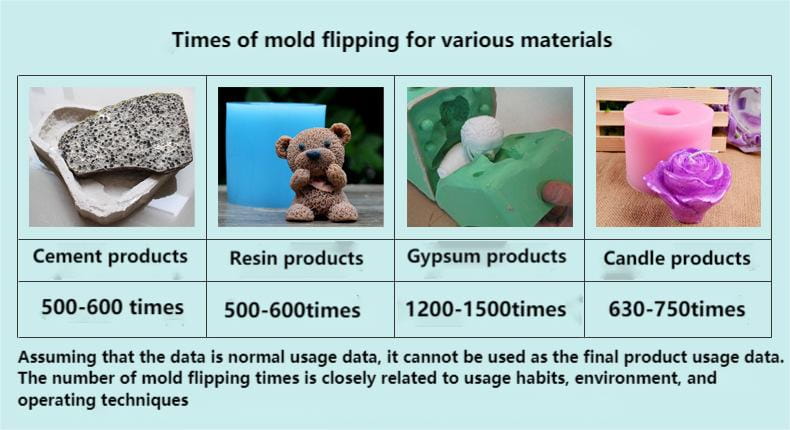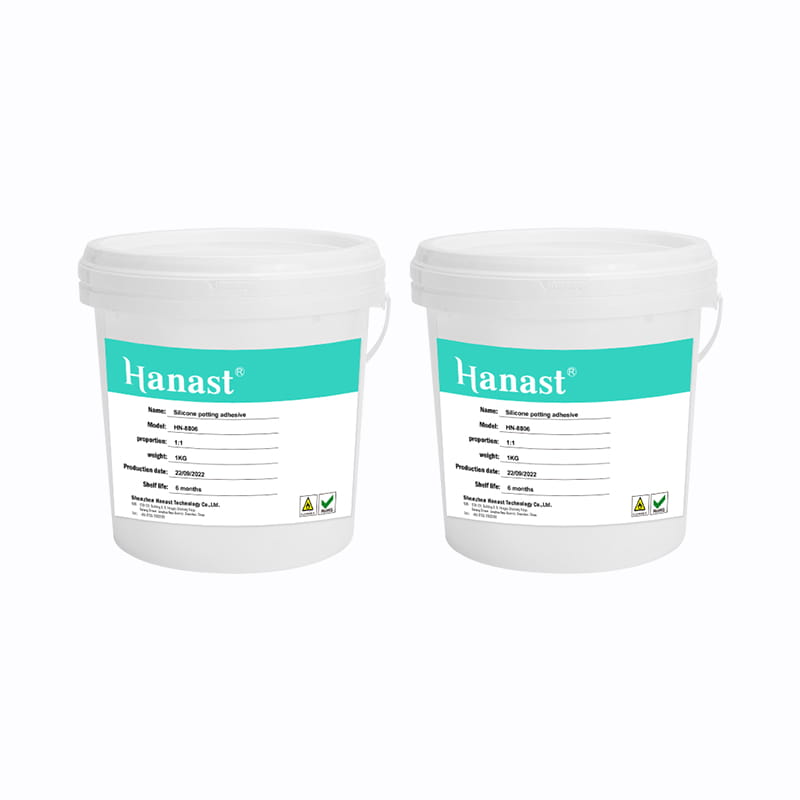What is the appropriate hardness and strength of mold silicone?
 Jun 09,2023
Jun 09,2023

 Hanast
Hanast
The hardness of mold silicone refers to the ability of silicone rubber material to resist hard material pressing into the surface, which is the hardness of silicone rubber. The hardness range of silicone rubber is from 10 to 80, which allows designers to freely choose the required hardness to achieve the best specific function. Mixing polymer matrix, fillers, and additives in different proportions can obtain different intermediate hardness values. Similarly, the time and temperature of thermal curing can also change the hardness without damaging other physical properties. What is the appropriate hardness and strength of the mold?
Tensile strength: Tensile strength refers to the force required per unit of measurement when a piece of rubber material is torn. The results show that the tensile strength of solid silicone rubber is 4.0-12.5 mpa, fluorosilicone rubber is 8.7-12.1 mpa, and liquid silicone is 3.6-11.0 mpa.
Tear strength: When a force acts on a gap, the resistance that hinders the expansion of the gap or gap is called tear strength. Hot vulcanized solid silicone rubber will not tear even under extremely high torsional stress after shearing. The tear strength range of solid silicone rubber is 9 to 55 kn/m, fluorosilicone rubber is 17.5 to 46.4 kn/m, and liquid silicone is 11.5 to 52 kn/m.
Organic silicon materials have good tensile strength, and the tensile strength index depends on the hardness and softness of the product. Generally speaking, the soft hardness of silicone rubber product manufacturers is around 20-80 degrees. The lower the hardness, the better the tensile strength of the product. The tensile strength can generally reach around 300%, with a minimum of around 20%. However, this depends on the structure and shape of the silicone product.
This is tear strength, which is indispensable for silicone rubber materials. Silicone rubber materials will undergo tearing under stress and other factors, which is an inevitable phenomenon for all rubber materials. Cracks caused by cracks and stress cracking account for a small number, because silicone rubber with conventional hardness will not tear and break, while materials with higher hardness are likely to crack, and the tensile strength and hardness of silicon gel products are important indicators of materials. In the vulcanization production process of silicone processing manufacturers, the larger the molecular weight of organic silicone compounds, the greater the effective crosslinking tensile stress. In order to obtain the specified elongation stress, the crosslinking density of small molecular weight materials can be appropriately increased. All structural factors that can increase Intermolecular force. Increasing the density of silicone materials can prevent the hardness of the product from affecting its tensile strength!




 Home
Home


 Demolding Techniques for DIY Candle Mold Silicone Mold
Demolding Techniques for DIY Candle Mold Silicone Mold  You May Also Like
You May Also Like







 Tel
Tel
 Email
Email
 Address
Address












